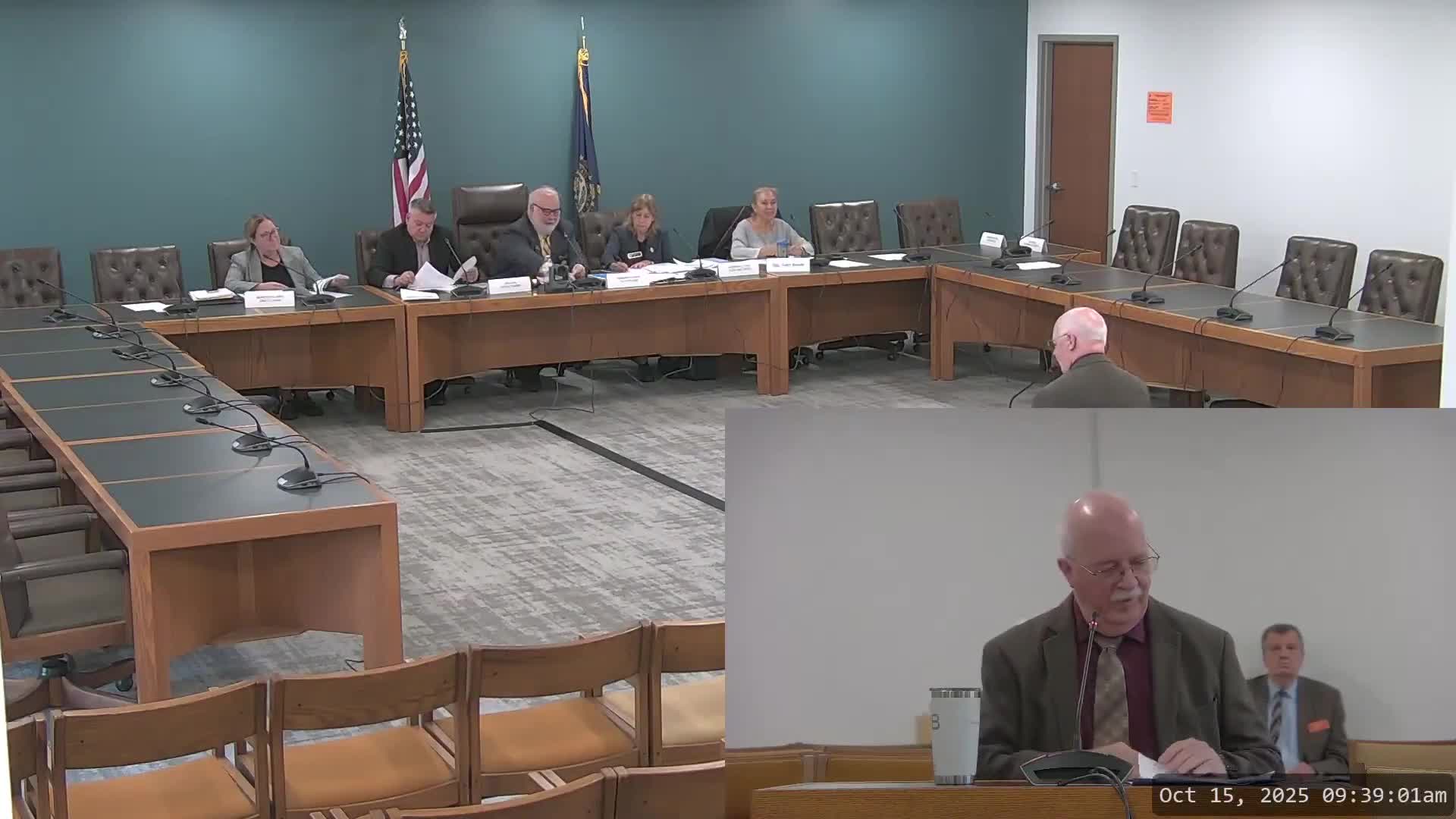School business officials warn countywide SAU consolidation would be complex and may not save money
Get AI-powered insights, summaries, and transcripts
Subscribe
Summary
Chuck Bates, executive director of New Hampshire ASBO, told the committee that School Administrative Unit (SAU) consolidation raises operational, financial and emotional challenges, citing multiple accounting systems, allocation rules, local-control resistance and unclear payback timelines.
Chuck Bates, executive director of the New Hampshire Association of School Business Officials, told the Committee to Study Reducing the Number of School Administrative Units in the State that consolidating SAUs into larger units — including a county model — would present significant operational and financial hurdles and might not yield promised savings.
Bates, a retired business administrator who previously led SAU 13, told committee members that New Hampshire has roughly 110 SAUs, of which about 67 are single-district SAUs and roughly 43 are multi-district SAUs; he also noted about 32 charter school SAUs in the state accounting. He said business administrators (BAs) handle a wide set of functions — accounting and financial management, facilities, food service, human resources, information management, pupil transportation and risk management — often all at once in smaller districts.
“I think local control is the biggest challenge you’ll have,” Bates said, describing strong local resistance in small towns to decisions such as closing an elementary school or changing bus routes. He also flagged practical barriers: multiple accounting software packages (he estimated four or five), the lack — until recently — of a standardized chart of accounts, and complexities in reallocating SAU costs (using average daily membership and equalized valuation). Bates said existing statute requires districts to vote on consolidation and that those voting rules complicate implementation. He advised the committee to consider likely relocation of staff and equipment, potential sale or sublet of space currently used for SAU offices, and the need to retool payroll and grants administration.
On whether consolidation would reduce administrative head count, Bates said savings are not guaranteed. Consolidation might eliminate some positions but could require hiring more senior staff to manage a larger centralized office and could add operating costs such as travel and new infrastructure. He urged caution in assuming a simple “economy of scale” outcome and recommended the committee examine payback periods and realistic transition costs before proposing statutory changes.
Bates described New Hampshire ASBO’s certification and professional-development work and said most districts have at least one staff member who is an ASBO member, but not all business administrators are certified — in part because New Hampshire removed a prior licensure requirement. He recommended the committee weigh operational realities, local sentiment, and statutory constraints when evaluating consolidation proposals.
